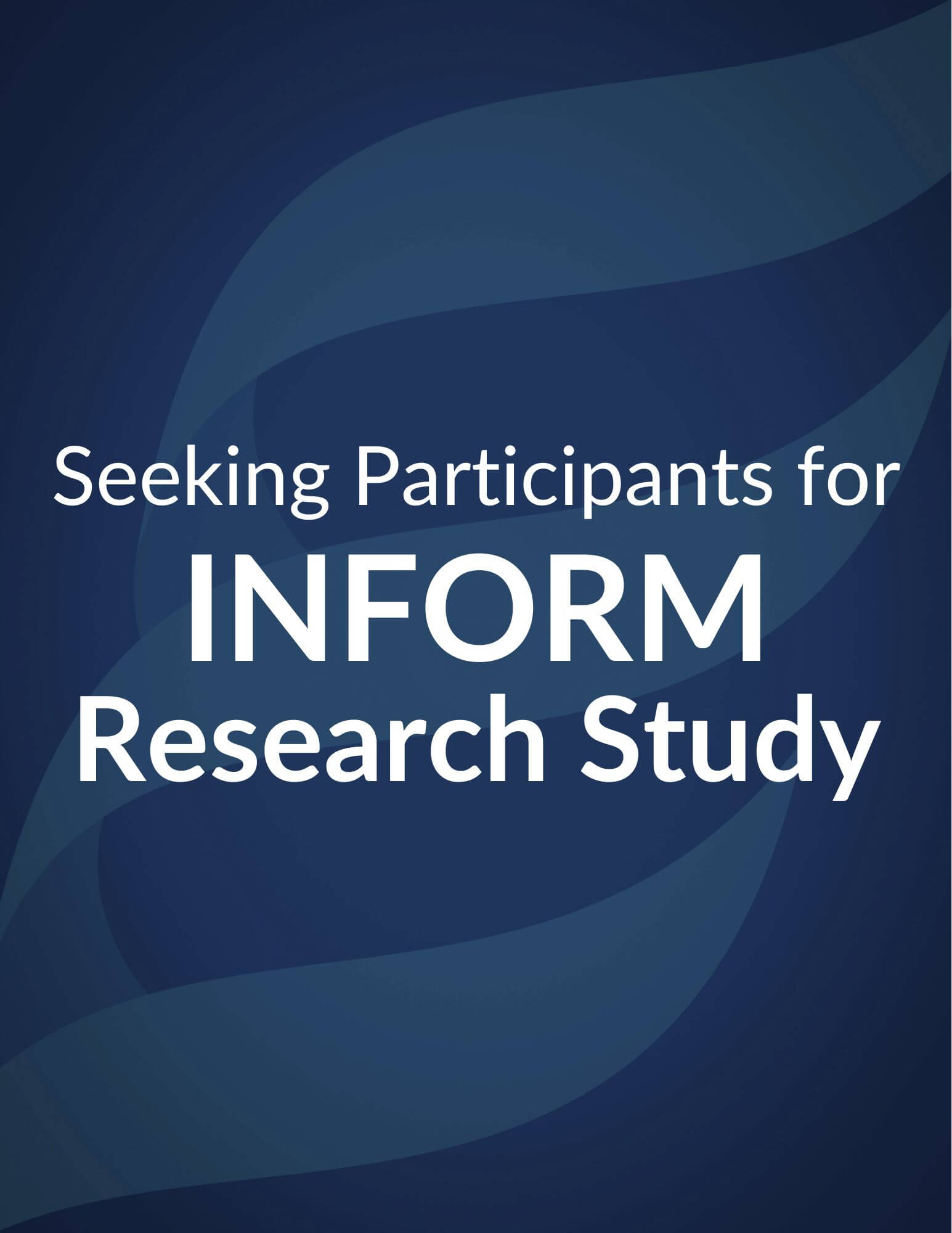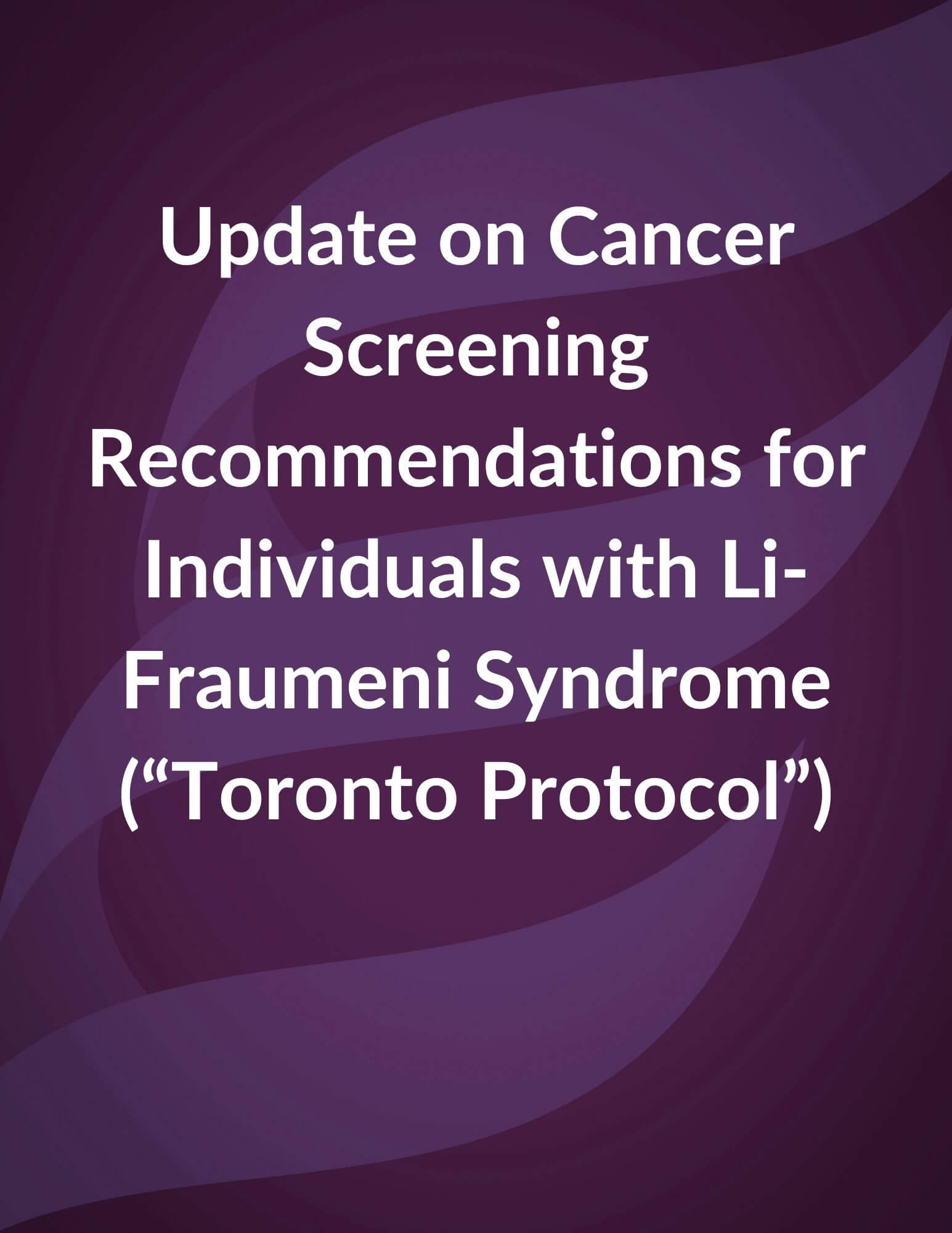Annual Whole-Body Imaging Contributes to Early Cancer Detection in Patients With Li-Fraumeni Syndrome
Researchers at the Dana-Farber Cancer Institute concluded that annual whole-body MRIs contribute substantially to detection of asymptomatic localized cancers among individuals with
Seeking Participants for the INFORM Research Study
Dana-Farber is leading an IRB-approved study that will screen for many of the deadliest cancers with a first-of-its-kind blood test. This
Update on Cancer Screening Recommendations for Individuals with Li-Fraumeni Syndrome
Published March 2025 by American Association for Cancer Research (AACR) is the updated version of the “Toronto Protocol,” the widely recognized
Liquid Biopsy for Li-Fraumeni Syndrome Cancer Screening: Survey Study
We invite you to participate in a survey about your experiences receiving cancer screening for Li-Fraumeni Syndrome (LFS), and your
Neoantigenic properties of TP53 variants influence cancer risk in individuals with Li-Fraumeni syndrome
Immunotherapy has revolutionized the treatment of cancers in the last 15 years, demonstrating that a patient's very own immune system
New Study: Navigating Dating & Relationships with LFS
Northwestern University is conducting a groundbreaking study focused on understanding patient perspectives on dating and disclosure to romantic partners
Additional cancer tumor types added to the Genetic Risk Assessment Guidelines
Breast, ovarian, pancreative, and prostate cancer have been added to the National Comprehensive Cancer Network Genetic/Familial High-Risk Assessment Guidelines
Optimizing whole-body MRI for early cancer detection in Li-Fraumeni syndrome
New prospective data from a German study indicate that annual whole-body MRI for LFS surveillance could be shortened and may not require contrast
Annual Whole-Body Imaging Contributes to Early Cancer Detection in Patients With Li-Fraumeni Syndrome
Researchers at the Dana-Farber Cancer Institute concluded that annual whole-body MRIs contribute substantially to detection of asymptomatic localized
Seeking Participants for the INFORM Research Study
Dana-Farber is leading an IRB-approved study that will screen for many of the deadliest cancers with a
Update on Cancer Screening Recommendations for Individuals with Li-Fraumeni Syndrome
Published March 2025 by American Association for Cancer Research (AACR) is the updated version of the “Toronto
1988: A cancer family syndrome in twenty-four kindreds by Fred Li
Researchers analyzed families with a pattern of sarcomas, breast cancer, and other cancers occurring in young patients. They found that cancer developed in an autosomal
1987: Normal cytotoxic response of skin fibroblasts from patients with Li-Fraumeni familial cancer syndrome to DNA-damaging agents in vitro
Researchers tested cells from people with Li-Fraumeni Syndrome (LFS), a genetic condition that increases cancer risk, to see how they respond to DNA-damaging agents
Breast Cancer Screening Post-Mastectomy Study
You are being invited to participate in a questionnaire study being run by Dana-Farber Cancer Institute. This study consists of a one-time questionnaire and
Dollar For – Financial Assistance Webinar
Watch our latest webinar: Navigating Hospital Financial Assistance, presented by Dollar For. Hosted by the LFS Association, this webinar covers the essential topic of
Larry Ingrassia – A difficult and inspiring journey of discovery
Lawrence Ingrassia, author of A Fatal Inheritance: How a Family Misfortune Revealed a Deadly Medical Mystery, talks about the two-decades long journey by Dr.
Raissa
I discovered the diagnosis before cancer. I had cancer twice, first in 2018 with a retroperitoneal leiomyosarcoma and in 2021 with HER2-positive and hormone-positive breast















